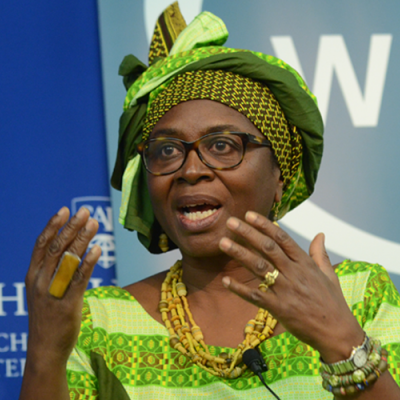Retired professor, diplomat and daughter of the University of Ghana’s first Sociology Department head, H.E. Prof. Abena Busia, has called for a deeper embrace of African feminist thought and interdisciplinary diaspora studies.
Prof. Busia made the call while delivering the second lecture of the UG Sociology Department’s 75th Anniversary series on Friday, July 11, 2025, at the Great Hall. Her lecture, themed “75 Years of Institutionalised Sociological Inquiry in Ghana: A Daughter’s Perspective,” reflected on the department’s legacy from both personal and academic standpoints.
Challenging the notion that feminism is an import, Prof. Busia emphasised that African women’s agency is firmly grounded in indigenous traditions and history.
“I’m looking at a world in which our daughters and granddaughters are being terrorised out of acceptance of that world, beginning with the lie that it is a foreign, Western concept,” she said.
“If you look at the agency of African women, from our earliest oral and written records until today, there is no way you can say feminist praxis is alien to this continent. Twenty years of gathering the materials that comprised the four volumes of Women Writing Africa have taught us that, if nothing else.”
“Let us not throw out the proverbial baby with the bathwater and reject the possibility of empowerment by naming ourselves what we do. Naming what we do is the field of sociology—and it is a good thing.”
She further underscored the need to institutionalise African diaspora studies through a multidisciplinary lens in order to better understand Africa’s cultural and intellectual connections with the world.
“Being in Brazil, if it has taught me nothing else, has taught me the need for an African diaspora studies that can speak to African studies, encompassing courses in sociology, history, linguistics, the arts, even the culinary studies of the African diaspora, material culture, and building. What does a sociology of diaspora look like? How would such a concentration, rather than the work of individual scholars, help us to understand better the shared world in which we live?
“The Africanness of the rational world is not a distant world. We remain continuously interconnected, but do not behave as if we recognise this.”
In a post-lecture interview with Univers News, Prof. Busia also cautioned against overreliance on digital tools in academic spaces. She stressed the importance of human interaction and critical thinking.
“You live in a world where it’s so easy to get distracted. You come to a lecture hall, and half of you begin on your phone and you’re not recording the lecture. As a generation, you do not realise the danger of your reliance on digital media.
“Digitization is a tool. It cannot be your only world. Talk to each other. Value human interaction.”
The lecture forms part of ongoing celebrations to mark 75 years of sociological education and research at the University of Ghana.
–
Story by Erica Odeenin Odoom|univers.ug.edu.gh
Edited by Michelle Lartey





